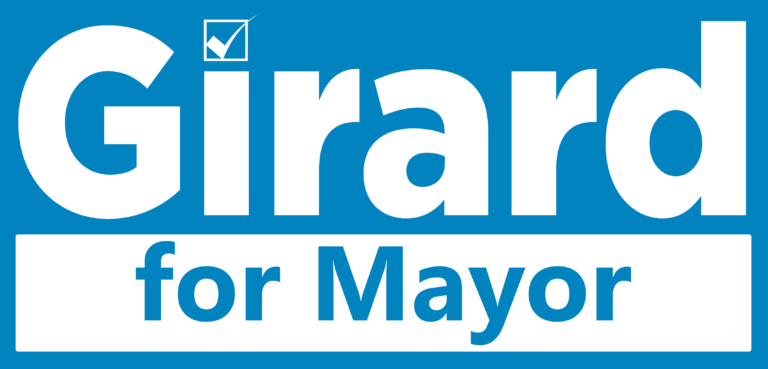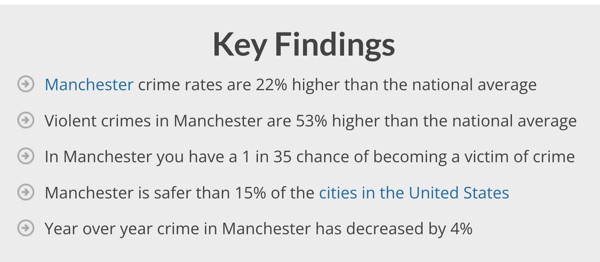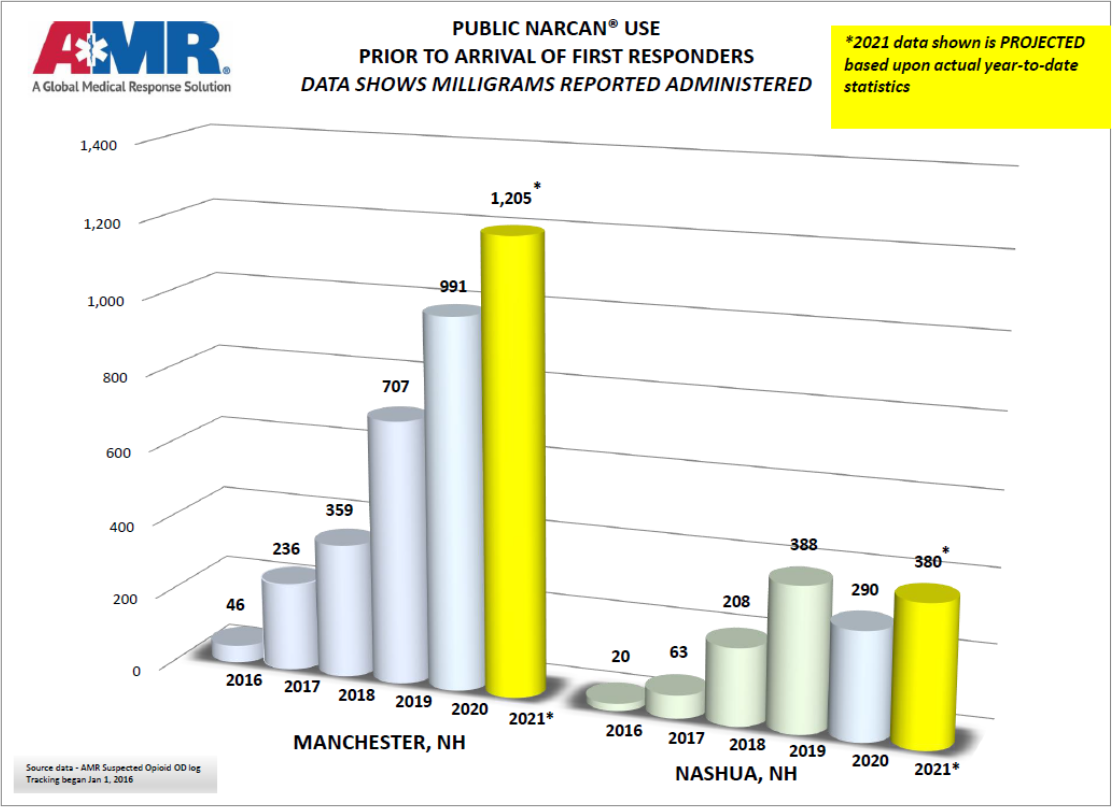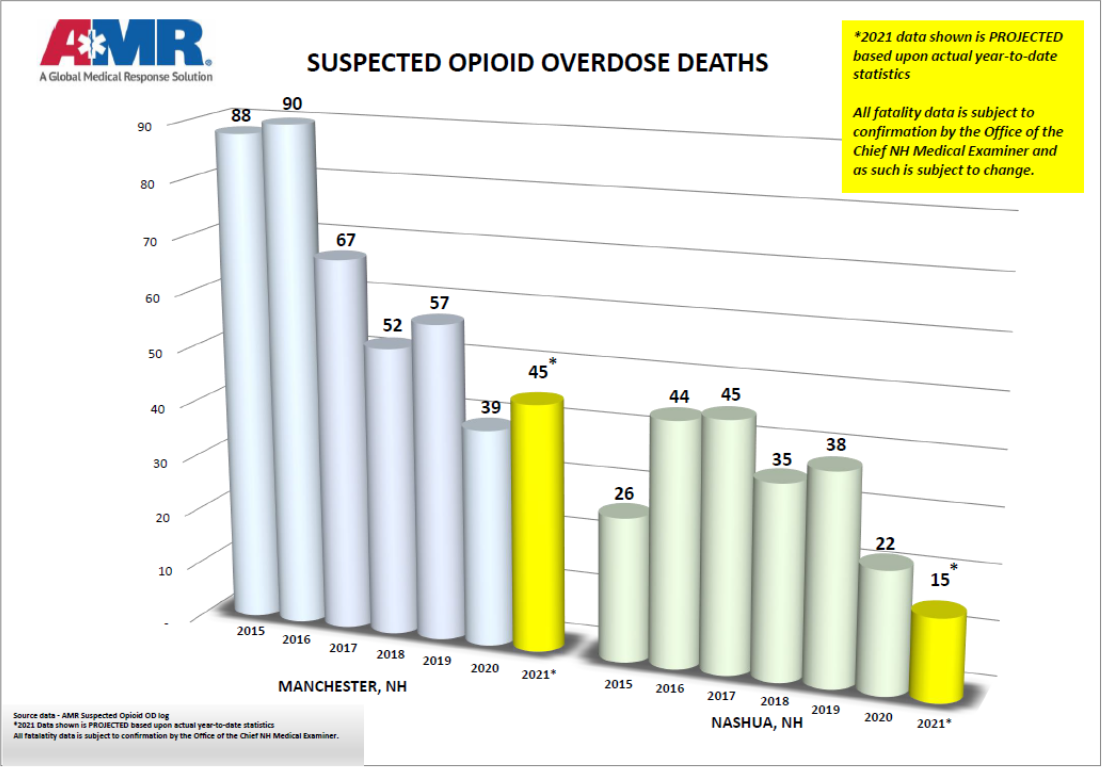Crime and Neighborhoods
We all know that crime is a real problem in our city, one that is getting worse. Despite the efforts of our police, there is so much crime that, as you will see below, Manchester’s crime rate is well above the national average. The real story is even worse as many people no longer bother to report so called “minor crimes” like graffiti, car break-ins, late-night disturbances, vandalism and other “quality of life” crimes. People are leaving the city because of it. Others are afraid to visit or consider Manchester for their home. ; Mayor Joyce Craig has enabled the horrific homeless vagrancy problem, turned a blind eye to the invasion of neighborhoods by illegal sober living facilities and has been noticeably absent in efforts to overturn state laws that have helped cause the crime wave in our city. A new mayor is needed to make Manchester safe again!
Here is just one of many examples I have of people who have left Manchester because of crime:
“I lived in Manchester for almost 7 years prior to moving to Bedford. My wife and I love Manchester, but ultimately the schools and homeless population drove us away. I used to have an office with the guys from (name removed to protect privacy) downtown above (name removed to protect privacy), but I shut that down prior to Covid. Some of my most vivid memories of my office space were when there was a homeless gentleman peeing on the carpet in the vestibule of my office building, it smelled like pee for weeks, that wasn’t the greatest way to greet potential clients and make them feel comfortable. The other thing I dreaded was my daily walk from Vine St. garage to my office. I encountered numerous homeless people sleeping in the stairwells and strolling around my route – I always carried a 9mm just in case. I loved my office, I loved being a patron at the great restaurants downtown, met many of the owners like Tim Baines and Peter Macone (Democrats, I know! But good guys). (Name removed to protect privacy), the owner of (name removed to protect privacy) is a college friend of mine & (Name removed to protect privacy) is a neighbor of mine here in Bedford. My wife and I would like to frequent Elm St. more often, but we find ourselves avoiding the area due to the issues down there. Currently I’m looking into buying an office condo in Bedford, although I’d prefer to be in Manchester due to the nature of my business, but clients won’t be encountering the homeless people over here while visiting & I think ultimately that’ll make them feel more comfortable. Rich, thank you for your time yesterday. It was great to meet you and I wish you the best of luck – please clean up our city. You have my support.”
In my own neighborhood, a one block tour in any direction from my home will reveal a property that was surrounded by federal marshals and the Hillsborough County Sheriff’s office looking for a top ten wanted fugitive, two sober living facilities that opened illegally, bringing a variety of crimes and disturbances, properties that brought the Manchester Police Department’s SWAT team to the block three times because of drug dealing and another handful of properties where drug dealing was non-stop. This doesn’t count any of the “quality of life” crimes that, at times, make it difficult to stay here. And, yes, some of my neighbors have left. Others are thinking about it.
Stuff like this is happening in neighborhoods across our city.
According to multiple Web sites that track and compare crime rates around the nation, Manchester gets an “F” on crime! According to www.areavibes.com, Manchester’s most recent crime stats get an F. (Click on first graphic on left for Manchester’s Crime Statistics Rating, click on second graphic on left for Manchester Crime Statistics Key Findings)
The story is the same at HomeSnacks where you can find complete crime statistics for Manchester.
In releasing the 2020 crime stats, MPD attributed what little decrease there was in crime to the COVID-19 lockdown, stating:
“It is apparent that some crimes, such as (burglary and thefts), have been affected by more residents working from and staying close to home during these times of social distancing. Other impacts have likely not yet been seen; however, these unprecedented times are a consideration when examining crime.”
Now, crime is surging in our city! Based on crimes committed this year, https://www.cityrating.com is tracking and projecting a dramatic increase in violent crime.
* The source of actual data on this Manchester, New Hampshire crime rate report is the FBI Report of Offenses Known to Law Enforcement for the corresponding year or years. Arson numbers are reported inconsistently. Zero values may indicate the data was not available. The projected crime rate data displayed above was generated from the trends and crime data available from previous years of actual reported data. In this case, the Manchester crime report data for 2021 was projected from 20 years of actual data. The last year of actual available crime data, as reported above, was 2019.
Other Web sites that track crime trends, like https://spotcrime.com, validate these projections. All claims from the current mayor to the contrary, crime is on the rise in Manchester!
This has to change! As mayor, I will be resolutely committed to the plans of action described below to make Manchester safe again!
Eliminate the Magnets
We must change the self-imposed policies and practices that have attracted criminal elements to our city. If we don’t recognize what the current mayor has done to create this problem, it won’t be fixed. Therefore, a major part of my plan to clean up our city’s crime are my proposals to handle the city’s horrific homeless vagrancy problem and crackdown on illegal sober living facilities. These proposals fundamentally change how the city deals with these problems because they are drivers of higher crime, increased transiency and a lower quality of life in neighborhoods across our city.
Attack Quality of Life Crimes
New York City Mayor Rudy Giuliani famously implemented the “Broken Windows Theory,” a little known approach to crime developed by James Q. Wilson. The idea was that by addressing seemingly “less important crimes,” bigger, more violent crimes would naturally decrease because the heightened attention paid to more “minor” crimes would make the general environment less vulnerable to more significant crimes. We know from history, it was a tremendous success, radically reducing overall crime by 57%, shootings by 75%, murder by 67%, robbery by 62%, burglary by 62% and auto theft by 68%.
Some ways to put this theory into action here in Manchester include:
- A renewed focus on connecting neighborhoods to police, via things like Neighborhood Watch. The more people paying attention to what happens, the less likely bad things are to happen. This would include reestablishing a West Side police substation and identifying other areas where substations would be useful.
- Relentless and immediate removal of graffiti from all public property, targeted enforcement efforts to catch these vandals and the enactment and enforcement of an ordinance requiring removal of graffiti from private property.
- Temporarily beefing-up police presence by inviting the State Police, the sheriffs of Hillsborough and Rockingham counties and even officers from surrounding towns to assist MPD with various initiatives targeting these issues. Note: Federal COVID relief funds could be used for this purpose.
- Prioritizing “small” things, like traffic enforcement. (Click here for an assessment of how Peoria, Il, a community very similar to Manchester, brought down violent crime via traffic enforcement.) This could involve personnel from other agencies and be funded by COVID relief money.
- FIXING the city’s panhandling ordinance. (In rejecting it, the court told the city how to fix it. It hasn’t been done!)
- Enforcement sweeps and “special attention” patrols where quality of life crimes are frequent occurrences. It has been done before and it works.
Changes to State Law
New Hampshire’s awful “catch and release bail law” needs to be changed. Whatever its intentions, having those arrested for committing crimes released before our police officers even finish their arrest reports is wrong and has contributed greatly to our city’s crime problem.
As mayor, I won’t stop until this law is changed! Click here for some suggestions on some simple changes that would make a big difference. Click here to better understand why this law is not only not compassionate but is also a crime creator.
As mayor, I would have supported this simple bill [HB 1343 from 2020] from Manchester state reps. Barbara Shaw (D-Ward 9) and Larry Gagne (R-Ward 6), a former police officer. The current mayor didn’t. [See HB 1343 in PDF format]
For as bad as the law is, however, the courts could and need to do more to put repeat bail violators behind bars. As mayor, I will use the “bully pulpit” that comes with the office to demand that judges put those who commit crime while out on bail in jail until they have their day in court. I will also impress upon the court the absolute necessity of taking city ordinance violations issued by our police, or any city agency, seriously. If the courts continue to let people skate on these citations, fixing the problem will be that much more difficult.
The so called “Good Samaritan Law”, which prevents police from arresting those they observe committing crime(s) at the scene of a drug overdose also needs to be changed. It was opposed by police across the state, including ours and has led to drug users “playing chicken” with emergency responders who have been repeatedly called to the same “party” to revive drug users who have overdosed. This ties up emergency personnel and needlessly endangers their lives.
According to these statistics from AMR, our ambulance contractor, it’s clear the law hasn’t reduced overdoses or deaths. In fact, all claims by the current mayor to the contrary, both are on the rise, sharply. (Click on 3rd and 4th graphics at left for larger view of Public Narcan Use and Suspected Opioid Overdose Deaths in Manchester)
Police Hiring
When then Police Chief Nick Willard eliminated the requirement that applicants not have visible tattoos, the number of people applying to be police officers jumped. To that end, I support a review of any other such requirements with an eye towards removing or altering those local requirements that may unnecessarily disqualify otherwise good people from being police officers. A review should also be undertaken to see what positions can be “civilianized” so that more of our compliment of sworn officers can be put to work on the streets.
I will also strongly support the department’s efforts to change the state’s hiring standards to broaden the potential pool of applicants. (All police departments have to use the state’s hiring standards.)
Hiring part-time officers that could work on special projects and considering how officers from other law enforcement agencies could work part-time in Manchester are other ways that could help bring more qualified people to the department.
Non-Police Approaches to Reducing and Preventing Crime
In addition to reengaging residents in the effort to secure their neighborhoods, there are several different things the city can do to stop being its own worst enemy and reduce crime.
Homeownership:
We need to focus resources and efforts on enabling people to own their homes in multi-family neighborhoods. Ownership of property reduces transiency and brings stability to neighborhoods. Tenants are far less likely to be problematic in buildings that are owner-occupied or in neighborhoods that have high percentages of owner occupants. Owners are far more vigilant because they have real skin in the game. This was critical to our success in cleaning up the Center City back in the 1990s and it will work again. As mayor, I will focus resources and efforts on increasing homeownership in our multi-family neighborhoods.
Development:
Our most crime troubled areas are those with the greatest density. The reason for that is dense areas are simply less desirable to live in than those with some distance between neighbors.
As mayor, I will oppose, including vetoing, zoning changes that increase density or weaken or eliminate single family development, such as those proposed in the current draft of the city’s Master Plan.
We need single family housing to create stable neighborhoods and attract or keep middle class families; families that are either not looking to move here or are leaving in droves. I will focus on enabling the construction of housing and the creation of neighborhoods that retain and attract middle class families. (Click here for my housing proposal). With 2 out of every 3 children in our city qualifying for free and reduced hot lunch in our schools, Manchester is dangerously out of demographic balance. We must have a stronger, larger contingent of middle-class families to reverse Manchester’s decline.
The layout and design of developments can deter crime, too. I support requiring a “safety assessment” on site plan reviews of both residential and commercial/industrial proposals at the Planning Board to deter crime through design.
Park Attendants:
Yes! Park attendants! Many of our city’s wonderful parks and trails have become breeding grounds for crime, thanks again to current practices and policies. Many simply avoid them now. In addition to changing those, which is spelled out in my plan to deal with homeless vagrancy, the time and attention of maintenance personnel will help reduce the criminal activity that currently makes these places undesirable for Manchester’s residents and visitors alike. Attendants would be focused on these trouble spots:
- Crystal Lake
- Veterans Park, to include Victory and nearby downtown parks
- Livingston Park, including Doors Pond and Stark Park
- Derryfield Park, including the trails up to Weston Tower and those just above the MacIntyre Ski Area
- Rock Rimmon, to include the Piscataquog Trail
- The South Manchester and Rockingham trails
With regular attention, maintenance, cleanup and surveillance, those who would abuse the parks will be better deterred and police can be notified by the attendants in a timely fashion, if necessary.
Other City Agencies:
Many departments have citation authority, including, but not limited to, the Department of Health and the Department of Planning and Community Development. As mayor, I will see that a thorough audit of their citation powers and enforcement actions is done to determine how they can be more involved and effective in addressing situations that attract crime and destabilize neighborhoods.
The enforcement authority of the Department of Public Works also needs to be reviewed and updated to better address some of these challenges, such as graffiti. Also, making sure streets are swept, medians are weed and trash free and dead/broken trees are removed and replaced are key to sending the message that we pay attention and care about our surroundings.
This all ties back to the “Broken Windows Theory” that successfully cleaned up New York City.
Back the Blue
Finally, and importantly, in these unfortunate times when the police are under assault, literally and figuratively, nationwide, we must stand for and with our local officers! That goes well beyond the typical lip service paid by some politicians in an election year. It means:
- Standing for their right to Due Process when accused of wrongdoing, not joining those who would convict them before the investigation is concluded and the evidence presented.
- Providing training to ensure they avoid trampling anyone’s constitutional rights, not providing training that accuses them of having “implicit bias” or being “systemically racist.”
- Supporting qualified immunity to protect them against frivolous lawsuits.
- Finding ways to express our appreciation for the work they do and the sacrifices they make.
In conclusion, we can conquer our city’s crime problem, but we have to rethink enforcement priorities, engage residents and consider how other enforcement mechanisms could be improved and better used.
We must play the long game on housing and neighborhood development while we stand up neighborhoods to better work with our police and other city agencies to improve their quality of life.
We must enforce what we can locally, while fighting hard for needed changes to state law and demanding the courts do their job appropriately.
Finally, we must absolutely and resolutely put an end to the current policies and practices that attract criminal elements as well as an unsustainably large, rapidly growing and transient socio-economic demographic that has destabilized neighborhoods across our city. If we don’t, middle class families will continue to leave and those looking to move into the area will continue to settle in our suburbs, thus cementing our city in the classic urban death spiral in which it is now caught.
As your mayor, this will be my action plan to make Manchester safe again and I know, with your help, we can, and will, get it done!




